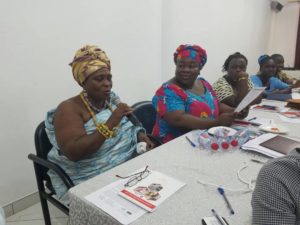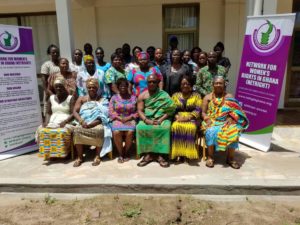Network for Women’s Rights in Ghana (NETRIGHT) has urged the Parliamentary Select Committee on Lands and Forestry to push for the consolidation of the new Land bill to address systematic barriers that would enhance gender equality and social inclusion in land governance.
Similar, the civil society organization has underscored the need for policies in the agriculture sector to be responsive to gender.
Speaking on the sidelines of a round-table discussion in Ho on Tuesday, the Programme Manager of NETRIGHT, Ms Patricia Akakpo said, barriers to land acquisition, limited or no access to credit and lack of technology was affecting the growth of the sector and the quality of life for female farmers, hence should be appropriately addresed in the proposed land bill which is currently before parliament.

“NETRIGHT wants the gender inclusion issues in the provision should not be watered down, and some proposals that NETRIGHT have made to be included in the Land Bill should also be included.”
She indicated that, women who formed the majority of the workforce in the agriculture sector were faced with many challenges, a reason for embarking on nationwide round table discussions to raise awareness on the key issues on the land bill to solicit inputs from stakeholders, which would help tackle the challenges.
Some of the proposals raised by NETRIGHT Ghana included women’s right to land acquisition, land registration, gender consideration in staffing the customary lands secretariat and proper definition of gender and spouses.

The meeting brought together stakeholders from women rights advocate groups, traditional leaders, the media and legislators to discuss and make inputs into policy decisions on bridging gender gaps in the draft Land Bill.
The draft bill also takes into consideration ‘landguardism’, protection of Zongo lands, a direction on how foreigners could own land and protect the areas of common use like parks, as well as provisions to deal with spousal ownership of land.
By: Shalom Lumor/voltaonlingh.com




